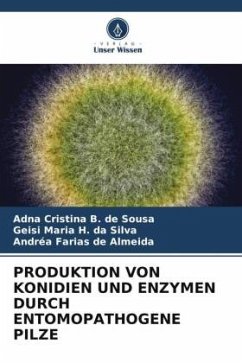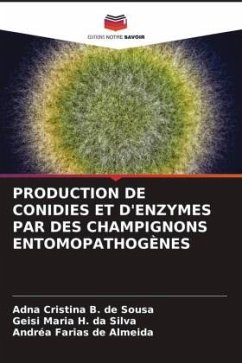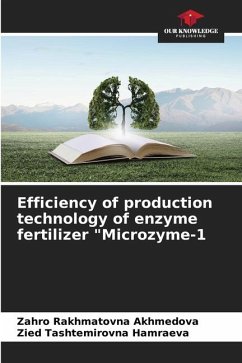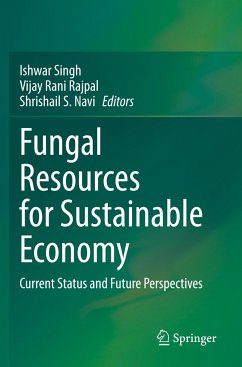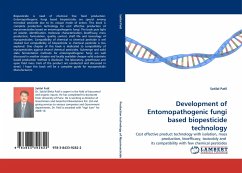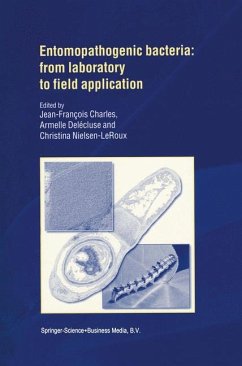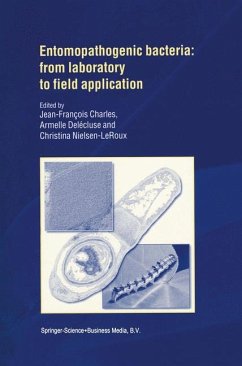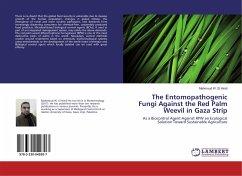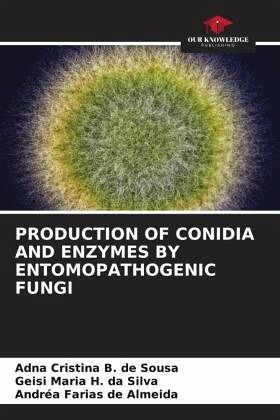
PRODUCTION OF CONIDIA AND ENZYMES BY ENTOMOPATHOGENIC FUNGI
Versandkostenfrei!
Versandfertig in 6-10 Tagen
29,99 €
inkl. MwSt.

PAYBACK Punkte
15 °P sammeln!
Metarhizium anisopliae is an entomopathogenic fungus widely used in the biological control of agricultural insect-pests. Its infection process comprises a sequence of mechanical and biochemical events, from which there is the production of enzymes and toxins of high importance for the colonization process of the host. Knowing this, it is of great relevance the studies that demonstrate the large-scale production of M. anisopliae both aiming the biological control of pests and the production of enzymes important for biotechnological processes. In this context, the present research aimed to analy...
Metarhizium anisopliae is an entomopathogenic fungus widely used in the biological control of agricultural insect-pests. Its infection process comprises a sequence of mechanical and biochemical events, from which there is the production of enzymes and toxins of high importance for the colonization process of the host. Knowing this, it is of great relevance the studies that demonstrate the large-scale production of M. anisopliae both aiming the biological control of pests and the production of enzymes important for biotechnological processes. In this context, the present research aimed to analyze the potential of using the Algarrobo tree for conidiogenesis and for the production of hydrolytic enzymes (cellulases, proteases, invertases and amylases) from the entomopathogenic fungus M. anisopliae, by solid-state fermentation.



